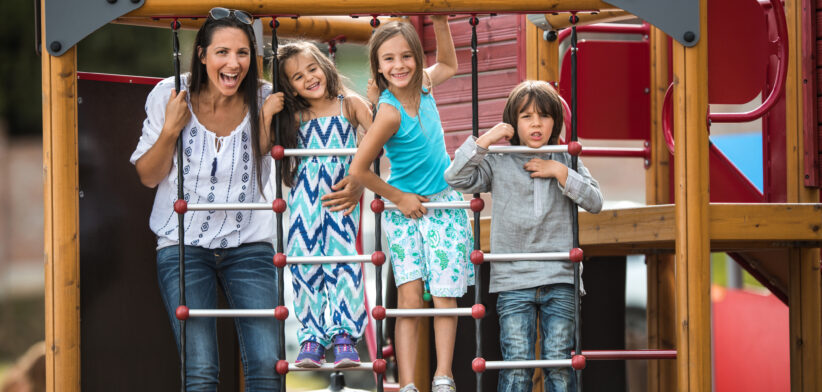Playground equipment that encourages risky play is part of a “biological need” in childhood development, new research has concluded.
The research team at Dartmouth College says this type of risky play has been passed on from apes and early humans.
They say the trend towards “surplus safety” in play is potentially undermining the ability of children to independently test their physical and cognitive abilities in a situation where injury is possible but avoidable.
Paper co-author Zane Thayer said one of the ironies of modern parenting was that children had never been physically safer but parents had never been more worried about them.
“We need to consider the potential longer-term benefits of allowing them to engage in play where there is some level of risk so they can overcome challenges on their own and learn from it when it doesn’t work out,” she said in the research report.
“Generally, researchers have found that risky play helps children build resilience and confidence, skills that resonate throughout life.”
The research, published in the journal Evolution, Medicine, and Public Health said fossilised injuries seen in early humans showed juveniles probably engaged in “extensive swinging, climbing, jumping, and other risky play”.
“The 3.3-million-year-old remains of a female Australopithecus afarensis child known as Selam exhibit shoulders, fingers, and feet adapted to climbing in trees and hanging from limbs, like modern apes.,” the research report said.
“The 3.2-million-year-old skeleton of Lucy, an adult female of the same species, shows healed fractures thought to result from falls as high as 40 feet (12 metres).”
Another co-author Luke Fannin said children of early humans appeared to spend as much time in trees as adults did.
“If you’re spending all that time in trees as a juvenile, you need confidence, because falling from a tree can be devastating and possibly fatal for a large ape or hominin,” he said.
“We see in modern non-human primates that juveniles test the limits of what they can and can’t do, what the risks are, and how to respond. That leads to the climbing skills we see in adults.”
He said past and current research pointed to children gaining physical and experiential skills by exploring their boundaries through play.
The research marked the 100th anniversary of the patenting of jungle gyms and monkey bars as play equipment.
The full report is on the Dartmouth College website.








